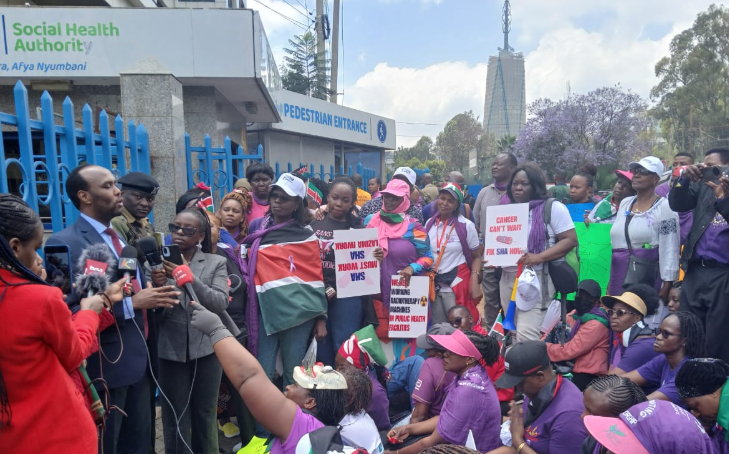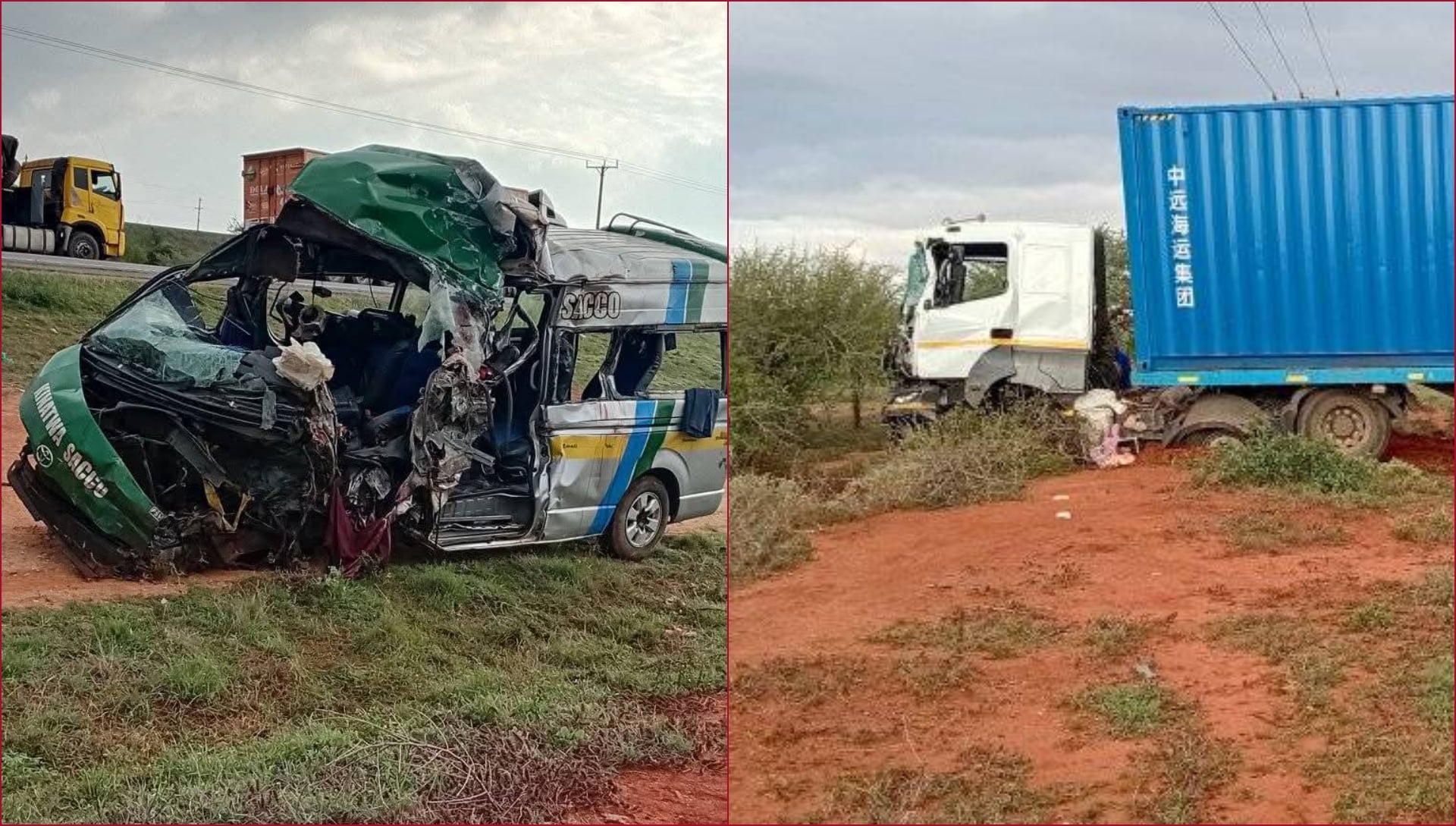The Kenyan Network of Cancer Organizations (KENCO) stormed the Social Health Authority (SHA) offices on Tuesday, October 7, in a peaceful march demanding urgent reforms in cancer care delivery.
In a short statement through their social media page, KENCO claimed that cancer patients are facing reduced oncology benefits, long approval delays, high treatment costs, and gaps in communication and medicine availability.
The demonstration, which took place earlier in the morning, saw cancer advocates converge at the SHA headquarters to press for immediate action on what they described as critical gaps in the health system that are putting lives at stake.
"Patients are facing reduced oncology benefits, long approval delays, high treatment costs, and gaps in communication and medicine availability," KENCO stated.
According to KENCO's statement, the organization called for the reinstatement of comprehensive cancer treatment coverage and expedited approval processes for cancer patients who cannot afford delays.
Read More
KENCO also demanded that SHA create more accommodating payment structures to ease the financial burden on cancer patients and their families.
The organization further pressed for guaranteed and prompt funding to ensure continuity of cancer care services across the country.

Subsequently, the advocates called for greater openness in how SHA manages cancer care programs and handles patient cases.
In March 2025, the government announced increased SHA coverage for cancer patients in an effort to provide Universal Health Coverage and restore public confidence in the new health system.
At the time, the Ministry of Health revealed it had expanded the oncology care package from Ksh400,000 to Ksh550,000 per household to make treatment more affordable.
The ministry also increased the coverage of High Dependency Units (HDUs) and Intensive Care Units (ICUs) sixfold, from Ksh4,600 to Ksh28,000.
Then-Health Cabinet Secretary Deborah Barasa stated that these improvements would protect patients from paying for services in cash, reinforcing the government's commitment to delivering a comprehensive and financially sustainable health system.
However, since its rollout, SHA has faced numerous challenges affecting service delivery, prompting criticism from various stakeholders in the health sector.






